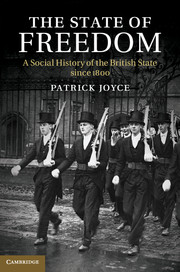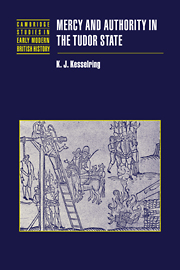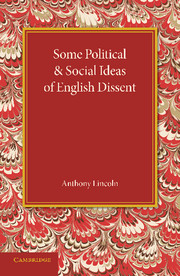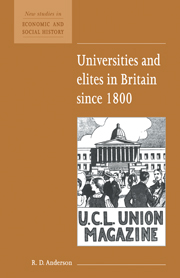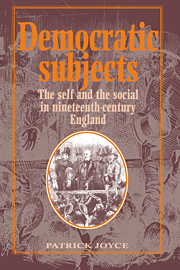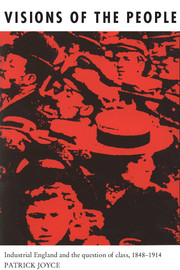The State of Freedom
What is the state? The State of Freedom offers an important new take on this classic question by exploring what exactly the state did and how it worked. Patrick Joyce asks us to re-examine the ordinary things of the British state from dusty government files and post offices to well-thumbed primers in ancient Greek and Latin and the classrooms and dormitories of public schools and Oxbridge colleges. This is also a history of the 'who' and the 'where' of the state, of the people who ran the state, the government offices they sat in and the college halls they dined in. Patrick Joyce argues that only by considering these things, people and places can we really understand the nature of the modern state. This is both a pioneering new approach to political history in which social and material factors are centre stage, and a highly original history of modern Britain.
- A major contribution to our understanding of the making of the modern British state
- Proposes a new understanding of the material nature of political power by examining the importance of ordinary objects of the state
- Extremely broad in range, from the rise of the new civil service and the development of postal communications, to the administration of empire in the Raj and elite education in public schools and Oxbridge colleges
Reviews & endorsements
"Joyce makes a sophisticated and informed argument that the state and its homogenous, elite leadership enshrined commitment to political freedom and institutions of order and authority that over time became systematized with considerable operational continuity … An important and stimulating historical study of governing and governance that should be in good library collections."
M. J. Moore, Choice
Product details
May 2013Hardback
9781107007109
392 pages
229 × 152 × 22 mm
0.72kg
27 b/w illus.
Available
Table of Contents
- 1. Introduction: the powers of the state
- Part I. The State of Things: Connecting:
- 2. 'Man is made of the Post Office': making the social technical
- 3. Postal economy and society: making the technical social
- 4. Filing the Raj: political technologies of the imperial state
- Part II. The State of Men: Governing:
- 5. The work of the state
- 6. The grammars of governance: pedagogies of the powerful
- 7. 'The fathers govern the nation': the public school and the Oxbridge College
- 8. Conclusion: legacies of the liberal Leviathan.

